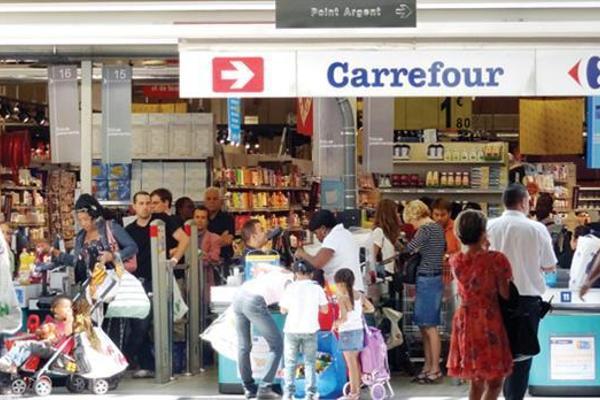Local markets could fill void if int’l retailers exit
ISTANBUL - Reuters


In August, Carrefour’s new Chief Executive Officer (CEO) Georges Plassat said the French retailer was considering some of its operations Turkey and Indonesia. REUTERS photo
In the event that the French company Carrefour and the German company Metro Group sell their operations in Turkey as has been hinted at in recent days, Turkish supermarket chains are considering forming a consortium to purchase the foreign companies’ operations.These supermarkets believe it would be wiser to purchase these markets given their already established corporate infrastructure, which would enable them to grow faster while reducing supply costs. In order to finance the purchase they are considering holding an Initial Public Offering (IPO) or forming partnerships with hedge funds.
Ayhan Salman, chairman of the supermarket chain Hadim, which services the Bursa, Eskişehir and Kütahya regions of Turkey told Reuters they were currently in talks with other markets to form a consortium to consider acquisitions.
“No individual market [in Turkey] has the capacity to purchase an international brand. However, if we combine our capital, it is an achievable aspiration. Furthermore, we can benefit from financial instruments. We can hold an IPO or talk to foreign hedge funds,” said Salman.
In August, Georges Plassat, Carrefour’s new chief executive officer (CEO) said Carrefour was considering selling some of its operations in countries like Turkey and Indonesia. Metro Group Chief Executive Office Olaf Koch had made similar statements about selling their Real brand and said the company would re-evaluate their operations in the third quarter. He told Reuters that they were currently considering selling the Real brand in Turkey and Eastern Europe.
Carrefoursa, Carrefour’s local market chain with Sabancı Holding, has 113.42 million Turkish Liras of paid in capital with a 2011 turnover of 2.45 billion liras with 28 stores and express markets in Turkey.
The Metro Group, meanwhile, has 24 wholesale stores and 12 Real hyper markets in Turkey. Its 2011 turnover was 1.68 billion euros, but this includes its electronics arms Media Markt and Saturn as well.
Difficulties adapting locally
Accordinög to Salman, Carrefour and Metro had difficulties adapting to the local market because they did not have a proper understanding of the local culture, were not flexible enough and consistently had to get approval from their headquarters, which made correcting local mistakes more difficult and time consuming. They were, in the end, unable to adapt and capture the changing trends in the Turkish market.
Cemal Özen chief executive officer of the Onur Market and Onurex brands in Istanbul and Trakya, which have 167 stores, said that since there had been no official announcement as to the foreign brands exiting the Turkish market, they had made no official move to form a consortium. However, preparations had been started, Özen said, adding that the consortium could possible include ten local grocery markets.
According to sector representatives the Turkish food retail sector exceeds $100 billion in size. Turkish Retailers Federation President Selamet Aygün told Reuters that local markets have a comparative advantage in the local markets given that the global retail chains are bogged down by global issues. He said that while global chains were only able to grow by 7 percent, local market chains were able to grow their operations by more than 20 percent.
